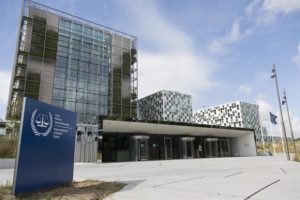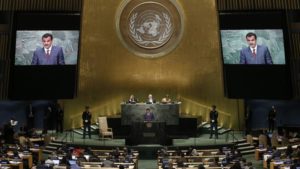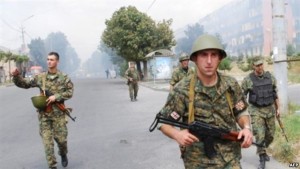 Today, 9 November 2017, Pre-Trial Chamber III of the International Criminal Court (ICC) issued a public redacted version of its decision authorising the ICC Prosecutor to open an investigation regarding crimes within the jurisdiction of the Court allegedly committed in Burundi or by nationals of Burundi outside Burundi since 26 April 2015 until 26 October 2017.
Today, 9 November 2017, Pre-Trial Chamber III of the International Criminal Court (ICC) issued a public redacted version of its decision authorising the ICC Prosecutor to open an investigation regarding crimes within the jurisdiction of the Court allegedly committed in Burundi or by nationals of Burundi outside Burundi since 26 April 2015 until 26 October 2017.
The Pre-Trial Chamber found that the Court has jurisdiction over crimes allegedly committed while Burundi was a State party to the ICC Rome Statute. Burundi was a State Party from the moment the Rome Statute entered into effect for Burundi (1 December 2004) until the end of the one-year interval since the notification of Burundi’s withdrawal (26 October 2017). The withdrawal became effective on 27 October 2017. Accordingly, the Court retains jurisdiction over any crime within its jurisdiction up to and including 26 October 2017, regardless of Burundi’s withdrawal.
As a consequence, the Court may exercise its jurisdiction even after the withdrawal became effective for Burundi as long as the investigation or prosecution relate to the crimes allegedly committed during the time Burundi was a State Party to the Rome Statute. Moreover, Burundi has a duty to cooperate with the Court for the purpose of this investigation since the investigation was authorised on 25 October 2017, prior to the date on which the withdrawal became effective for Burundi. Continue reading


